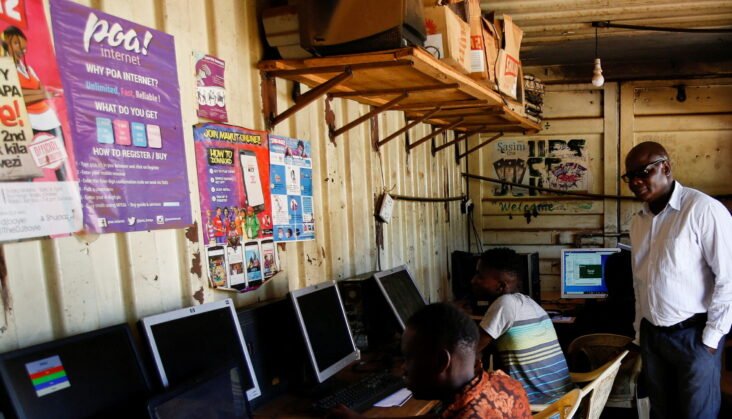[ad_1]
In 2021, 171 million netizens were affected by network outages in Sub-Saharan Africa. Civil society has been off the grid for 15,963 hours. This resulted in gigantic economic losses, amounting to a total cost of $1.93bn.
Regarding national voting days, at least 52 African elections have been affected by internet shutdowns between 2016 and 2021 according to the Office of the High Commissioner for Human Rights.
Kenya
Today, 22 million Kenyans are going to the polls to decide who will rule the country for the next five years. In the region, strategic Internet cuts and restrictions are used almost systematically.
Kenya, along with Niger, Cape Verde and Senegal signed the US-led “Declaration for the Future of the Internet” (DFI) list. The pact’s aim is to refrain signatories from “using the Internet to undermine the electoral infrastructure, elections and political processes, including through covert information manipulation campaigns”.
Yet on 29 April 2021, government spokesperson Cyrus Oguna pointed out that Kenya is not in fact a signatory because the DFI has not been ratified by the National Assembly.
However, Kenya remains one of the countries in Sub-Saharan Africa that has not deliberately shut down the internet around election days.
In other countries on the continent, it has almost become expected for Africans to face internet disruptions around elections:
This is shocking. Kenyans have internet on the eve of elections.
— Simon Kaggwa Njala (@SimonKaggwaNjal) August 8, 2022
Uganda
Kampala is a regular Internet access offender, shutting down the internet around election days.
In January 2021 elections, the administration blocked Facebook, Twitter, WhatsApp, and Instagram, as well as the iOS App Store and Google Play Store and access to VPNs.
Niger
In Niger, mobile internet was disrupted for ten days, from 24 February to 5 March 2021 after the presidential elections took place. The government’s response intended to be brutal and clamp down on protests, three days after the presidential ballot results.
The Republic of the Congo
The Republic of the Congo implemented a complete internet blackout between 21 and 23 March 2021, starting a few hours before the presidential elections. Broadband, mobile internet, as well as SMS messaging were not able to be used.
Zambia
During the Zambian presidential elections, which took place in August 2021, the government hit the kill switch. Internet connection was deliberately shut down as cyber laws to restrict the internet were passed.
The Zambia-based organisation Chapter One Foundation filed a lawsuit tackling the election-day barring of social networks. The Zambia High Court then ordered President Lungu to fully restore Internet access without further ado.
“While 2021 was a year marred by internet shutdowns during protests, conflict, and elections across Africa, it was also a year of fighting back,” observed Bridget Andere, Africa Policy Analyst at Access Now.
Internet Service Providers (ISP) are forcibly integrated with the repressive mechanism of the political system in power to protect their licenses.
[ad_2]
Source link

